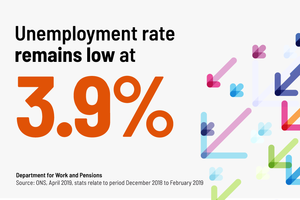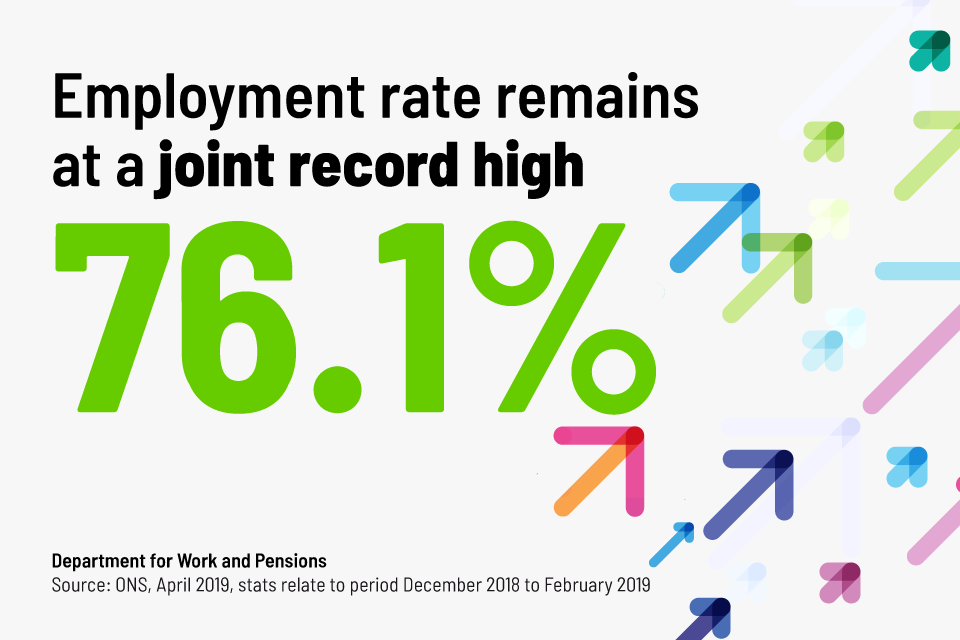
New figures published by the Office for National Statistics (ONS) show the employment rate has never been higher at 76.1%, while unemployment remains at its lowest rate since the 1970s at 3.9%.

Employment rate remains at a joint record high
There are over 1.1 million fewer unemployed people than in 2010, with youth unemployment level almost halved in that time.
Employment Minister Alok Sharma welcomed the figures from the ONS which also showed wages outpacing inflation for 13 months in a row, with real wages growing by 1.6% on the year.
Minister of State for Employment Alok Sharma said:
"The UK jobs market continues to go from strength to strength, proving the underlying resilience of the British economy.
"But we must not take this for granted. We need to work urgently to get behind a Brexit deal that protects this jobs record and gives employers the certainty to continue to invest in their workforce and boost wages.
"With more people in work than ever before, it is welcome news that wages are continuing to rise at their fastest rate in a decade.
"And by increasing the living wage and personal tax allowance for 2019, this government is putting more money in people's pocket, benefiting millions of families across the country."
The government has made more changes to the tax system for 2019 to ensure people are keeping more of what they earn.
The Universal Credit work allowance is increasing by an extra £1,000 per year
From April, working parents and disabled people will be able to earn an extra £1,000 a year before their Universal Credit starts to reduce. This change will see 2.4 million families keep up to an extra £630 per year of what they earn.
Fuel duty will remain frozen for the ninth year in a row
It will remain at 57.95 pence per litre across the UK. Fuel duty has been frozen for the ninth successive year, saving the average car driver £1,000.
Access to Work is increasing by an extra £2,000 per year
From 1 April 2019 people will be able to claim up to £59,200 annually through the Access to Work scheme to help pay for additional support that they may need in the workplace. This can include workplace adaptations, assistive technology, transport and interpreters.






